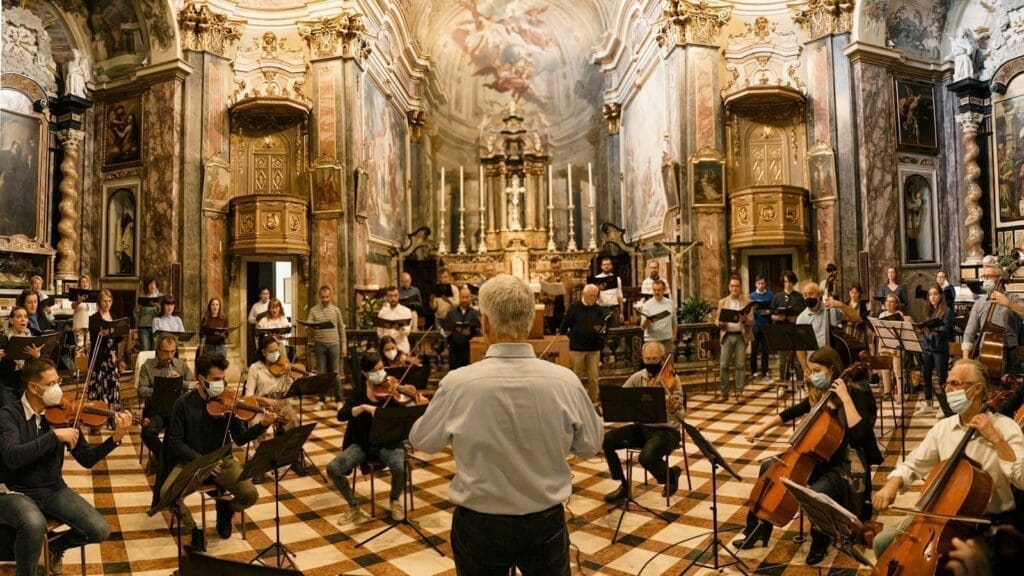What makes a good leader?

However, they are not playing as soloists but together with dozens of other musicians. Everyone has a score, but it’s limited to the parts an instrument must play. The entire composition’s score is too vast and impractical to be shared.
Therefore, the musicians ask for a coordinator who controls the interaction between different instruments, checks tempo, speed, and volume, and keeps listening to the entire composition. Of course, a good conductor makes specific decisions regarding timbre, the dominance of a set of instruments in a particular part, or, for example, inserting a “rubato” in a phrase while keeping the original tempo in another. He’s an artist himself, not just a mechanical coordinator!
However, all decisions concern the entire orchestra, even when they only affect a few musicians. Remember that the conductor has been designated the leader, and his horizon is always the largest. He has to “take” the entire Symphony and gently bring it to the public.
In the past, this role was usually assigned to the first violin, a poor man who had to play while trying to send messages using his hands. Quite complex, isn’t it? I sincerely can’t imagine the result, and I suppose that good performances were the product of each musician’s hard work more than firm leadership.
Another common problem is that some instruments, e.g., oboes, don’t always play. In each score, there are indications about the number of pause bars before they need to restart playing. Remember, they are alone, and the orchestra expects them to start playing precisely after the end of the last pause bar.
If you have played a Symphony a hundred times, you can probably get rid of some indications: your ears and memory are probably more precise than a metronome. But at the beginning, you need a lot of information! And above all, you must pay the maximum attention to avoid delays or early entrances.
Everything is much easier if the conductor can look in a particular direction (i.e., where the musicians sit) when it’s time to start playing. Maybe he can also use gestures to indicate how the entrance is expected to be (soft, violent, “a tempo,” etc.) In other words, he can simplify the task and maximize the artistic result.
Now, think again about the concept of “head.” Is a musician a mechanical tool? No, he has his head and can make autonomous decisions whenever he wants, but sometimes delegating this task is preferable.
It’s not a pure matter of granting power or donating prestige (the latter is generally a consequence of successful hard work) to an external actor, but rather a rational necessity.
I finish by saying that a good leader is precisely like a good conductor. The greater his musicians are, the greater he can be. His responsibility is to maximize the sum of these values. Otherwise, the first criticism will arise from the orchestra itself.
That’s precisely what happened to Placido Domingo at the Verbier festival. He wasn’t prepared to “borrow his head” to the orchestra, which caused confusion and an abysmal performance.
All the musicians had a working head with solid expertise in their field. They didn’t need someone who screamed or decided to act without caring about the score. Nor did they need a conductor who took for granted that his orchestra would have played well anyway!
They needed a leader to give birth to a unique musical experience. This is a very accurate (if you think about it) example of good leadership that summarizes all the features usually listed in management books.
Photo by Andrea Zanenga

